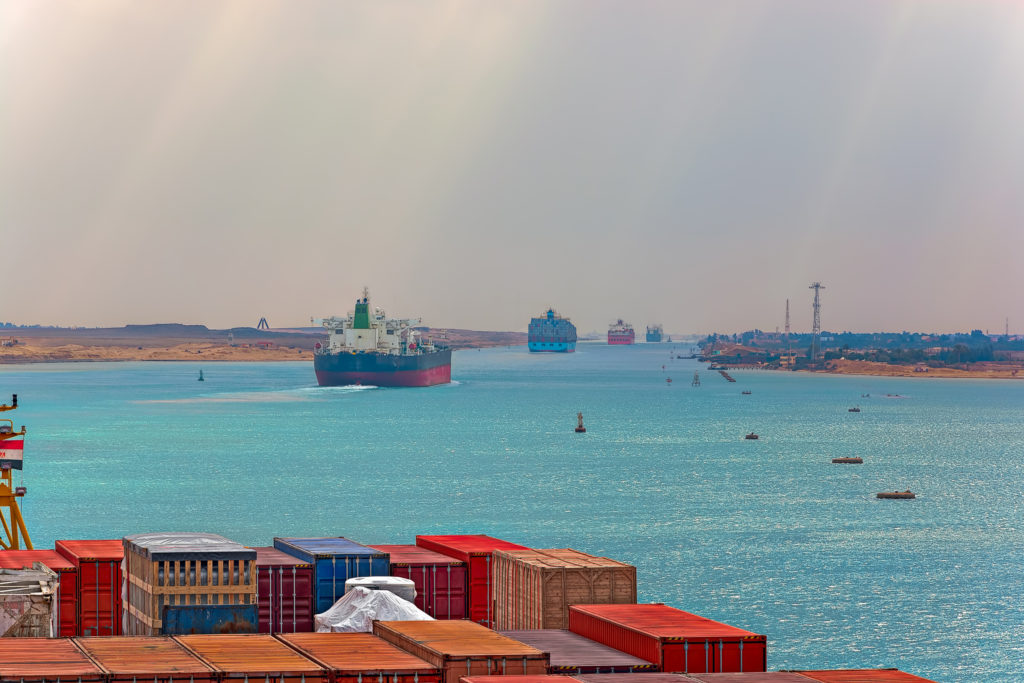
By Lisa Rosen
March 26, 2021
Welcome to my random musings about the world, on a weekly-to-occasional basis.
Where we are: Still hobbling around Hua Hin in my boot. Lee has taken to calling me Hopalong. Or Booty.
Stuck in a canal
I woke up on Wednesday to the news that a massive cargo ship had run aground in the Suez Canal and is hopelessly stuck, blocking up the entire canal. Traffic is currently at a complete standstill, with ships piling up in both the Red Sea and the Mediterranean.
That may not sound particularly interesting to most of you, if you’ve never really considered the reality of the global shipping industry. I know my eye would’ve skimmed right over that headline, not too many years ago.
Then we went to Panama (it was a random choice—we had been cold in Peru and Bolivia for far too long, and wanted to thaw out). Being the geeky academic type that I am, I thought I should learn a little something about this country we had rocked up in purely because it was warm and was easy to get to.
So I read David McCullough’s massive tome, The Path Between the Seas: The Creation of the Panama Canal, 1870-1914.
Y’all. It’s 700 pages long. It’s epic (and I mean that in the strictest literary sense). Perhaps it helped that I listened to it on Audible, while rambling the sweltering streets of Panama City, but the building of the Panama Canal, and all the human progress and ugliness that ensued, make a fascinating story. I would listen to a bit, then rip out my headphones to repeat some stunning fact or juicy tidbit to Lee. Even he was fascinated by this story that he was getting second-hand, in random, unlinked snippets.
So of course, we both became obsessed with the canal. First we went to the visitor center at the locks on the Pacific side (which is, counterintuitively for those of us who grew up in the US, the southern end of the canal). That was easy enough—we just took a taxi. It was only a few miles from our hotel in Panama City. It was absolutely fascinating. The ships are so much bigger than I could’ve imagined—even seeing one from a distance at sea, or gliding out of Government Cut in Miami—I hadn’t really understood just how big they are. We stood on the viewing platform and counted the containers on board as ships moved slowly through the locks, and thought about how many hipster coffee shops or concept stores we’ve been to that were trendily constructed in repurposed shipping containers. These ships can carry thousands of containers. The whole experience was weirdly fascinating for a couple of liberal arts types who know absolutely nothing about engineering.
The next thing, obviously, was to go see the other end of the canal—the Gatun Locks. We’re a little obsessive that way. The other thing I really wanted to do while we were in Panama City (thanks to David McCullough) was ride the railroad, which was built to facilitate construction of the canal, and is still operational (it opened in 1855).
So we took an Uber. From the Pacific to the Atlantic (I love saying that). Colon—the city on the northern side of the isthmus—has a reputation for being a little sketchy, but the visitor center is quite a few miles out of town, so that seemed sort of irrelevant. The Uber driver was a bit perplexed that we didn’t want him to wait for us, but we didn’t know how long we’d be, and I was set on taking the train back to Panama City anyway. We waved him off on his way without a second thought.
We kind of preferred that second visitor’s center—it’s set a bit further in the jungle, you can see the locks better, and there were fewer visitors. We stayed all afternoon, watching the locks and the ships and taking a bazillion photos. We even had an extremely mediocre lunch at the buffet—the food was awful, but the view was excellent.
Late in the afternoon, the center started closing down for the day, and staff shooed us toward the door. Tourists started piling onto their buses and leaving. Lee pulled out his phone to request an Uber, and … there is no Uber in Colon. Or at the Gatun Locks Visitor Center. As a matter of fact, neither of us could even get a signal. So we went to the ticket booth, to ask someone to call a taxi for us. The woman who was closing up the ticket booth said there was no landline, so no, she couldn’t call. We tried offering our phones, but—no signal. She suggested we try the guard booth. We did. The security guard said there were no taxi services that far out of town. And she had no signal either.
By this time, the tour buses had all closed their doors and left. We were the last guests—even the staff were beginning to leave.
We must’ve looked a little stumped, because after watching us confer for a minute, the security guard asked where we were going, and said if we’d wait for her shift to end, she’d give us a ride to the train station.
And that was that. We hung out in the parking lot for half an hour, sweating and batting at mosquitos. Then we hopped into her car, along with another employee, and she very generously drove us right to where we wanted to go (it was a good thirty minutes in Friday afternoon traffic, and probably way out of her way).
The only significant part of this whole long saga is how completely unfazed we were by any of it. It just never crossed our minds to worry. In hindsight, perhaps we should’ve planned better, but in general, we’ve learned not to panic. It just seems unnecessary—chances are, glitches and unexpected obstacles will work out. Perhaps not the way we expected, but somehow. And that’s good enough.
From my writer’s notebook: You may have read about a volcano erupting in Iceland. It’s apparently of the boiling-lava-spewing-out-of-a-mountain variety, rather than the ash-closing-airspace variety. But because the lava is flowing across the landscape, a nearby archaeological site is about to disappear. ‘Rescue archaeology’ is being carried out, which is, if you think about it, an amusing paradox: someone named Ísólfur frá Ísólfsstöðum has been buried there for more than a thousand years, but now archaeologists are in a desperate race against time (and rapidly encroaching lava).
Take care,
Lisa
P.S. Thanks for reading, and feel free to share. If you have feedback, I’d love to hear it. And if someone forwarded this to you, thank them for me, and go to https://bookwoman.com/ to subscribe.
About The Author
Lisa Rosen
After a peripatetic childhood, Lisa Rosen stayed in one place long enough to raise two children, but now that they've flown the coop, she and her husband have given up the settled life and are traveling full-time. She writes stories about difficult families and beautiful places, inspired by their adventures.
She has a PhD in literature from the University of North Carolina, as well as a suitcase and a laptop.



